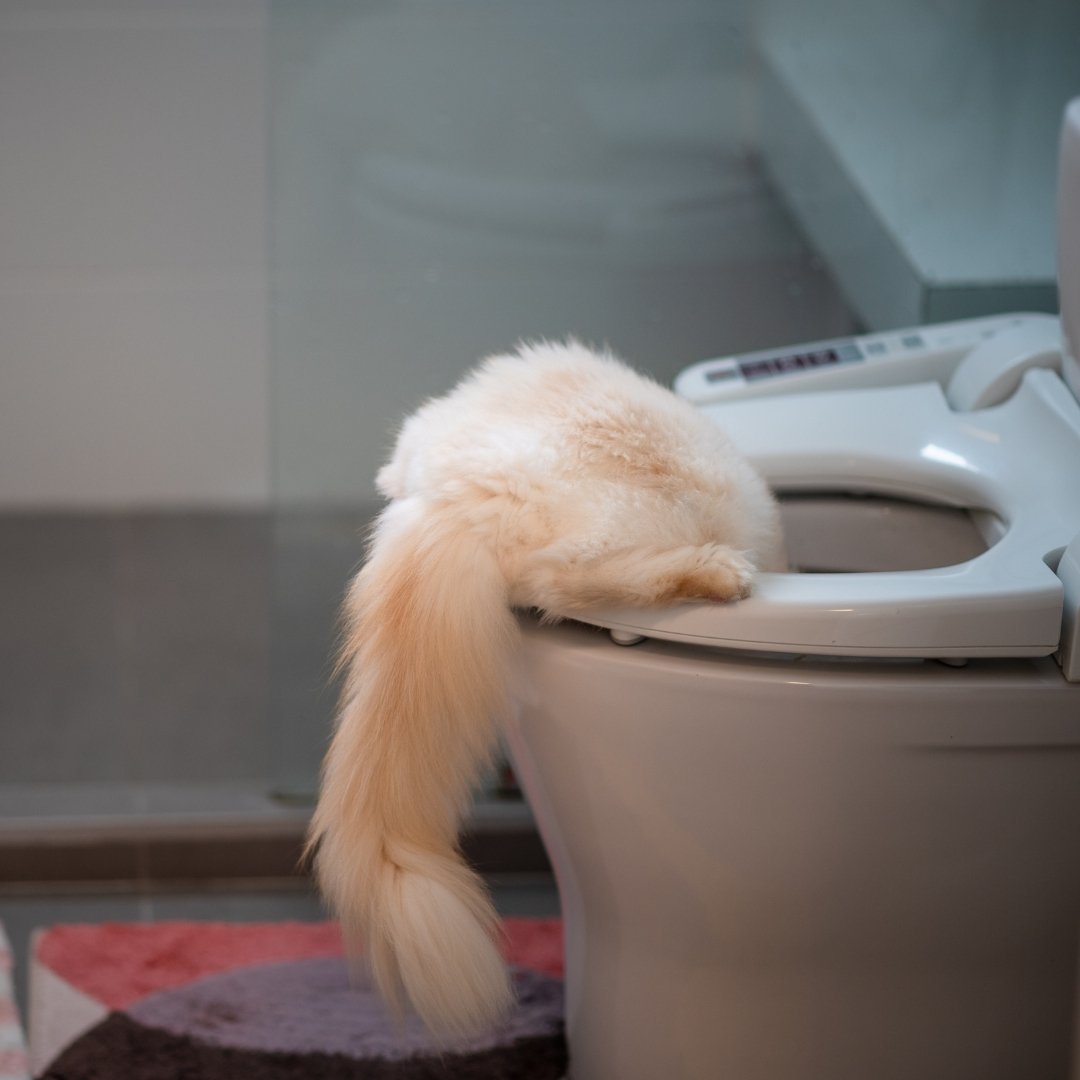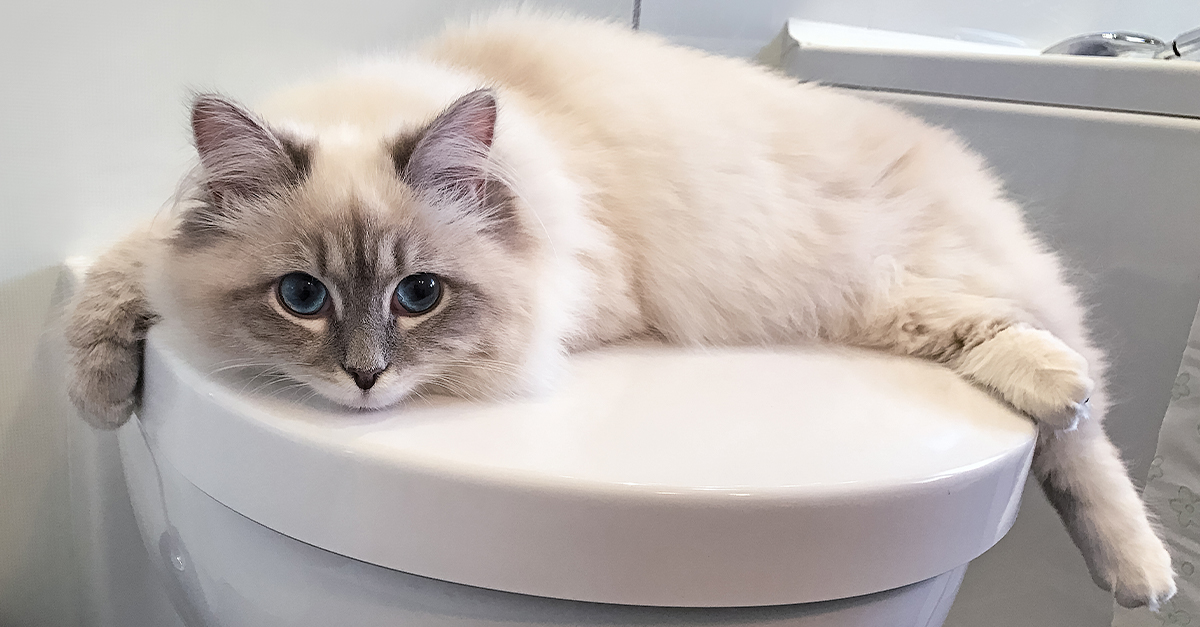Reasons You Shouldn't Flush Cat Poop Down Your Toilet - Maintain Your Plumbing System
Reasons You Shouldn't Flush Cat Poop Down Your Toilet - Maintain Your Plumbing System
Blog Article
The article following next involving Don’t flush cat feces down the toilet is rather entertaining. Read it for yourself and see what you think about it.

Intro
As feline proprietors, it's vital to bear in mind just how we get rid of our feline good friends' waste. While it might seem practical to flush cat poop down the toilet, this technique can have harmful consequences for both the environment and human wellness.
Alternatives to Flushing
The good news is, there are much safer and much more responsible means to throw away cat poop. Take into consideration the complying with alternatives:
1. Scoop and Dispose in Trash
The most usual technique of getting rid of pet cat poop is to scoop it into a biodegradable bag and throw it in the garbage. Make sure to make use of a devoted clutter scoop and take care of the waste quickly.
2. Usage Biodegradable Litter
Opt for naturally degradable pet cat litter made from materials such as corn or wheat. These trashes are eco-friendly and can be securely gotten rid of in the garbage.
3. Bury in the Yard
If you have a lawn, take into consideration hiding pet cat waste in a designated area away from vegetable gardens and water sources. Be sure to dig deep enough to prevent contamination of groundwater.
4. Set Up a Pet Waste Disposal System
Invest in a pet dog garbage disposal system especially created for pet cat waste. These systems make use of enzymes to break down the waste, lowering odor and ecological impact.
Health Risks
In addition to environmental problems, flushing feline waste can also posture health and wellness dangers to humans. Pet cat feces might include Toxoplasma gondii, a parasite that can cause toxoplasmosis-- a possibly severe illness, specifically for expecting females and individuals with weakened body immune systems.
Environmental Impact
Purging cat poop introduces harmful virus and parasites into the water supply, presenting a significant danger to marine ecosystems. These contaminants can adversely affect aquatic life and compromise water high quality.
Verdict
Responsible animal possession expands past providing food and shelter-- it likewise includes correct waste monitoring. By avoiding flushing cat poop down the toilet and choosing alternate disposal methods, we can reduce our ecological impact and protect human wellness.
Why Can’t I Flush Cat Poop?
It Spreads a Parasite
Cats are frequently infected with a parasite called toxoplasma gondii. The parasite causes an infection called toxoplasmosis. It is usually harmless to cats. The parasite only uses cat poop as a host for its eggs. Otherwise, the cat’s immune system usually keeps the infection at low enough levels to maintain its own health. But it does not stop the develop of eggs. These eggs are tiny and surprisingly tough. They may survive for a year before they begin to grow. But that’s the problem.
Our wastewater system is not designed to deal with toxoplasmosis eggs. Instead, most eggs will flush from your toilet into sewers and wastewater management plants. After the sewage is treated for many other harmful things in it, it is typically released into local rivers, lakes, or oceans. Here, the toxoplasmosis eggs can find new hosts, including starfish, crabs, otters, and many other wildlife. For many, this is a significant risk to their health. Toxoplasmosis can also end up infecting water sources that are important for agriculture, which means our deer, pigs, and sheep can get infected too.
Is There Risk to Humans?
There can be a risk to human life from flushing cat poop down the toilet. If you do so, the parasites from your cat’s poop can end up in shellfish, game animals, or livestock. If this meat is then served raw or undercooked, the people who eat it can get sick.
In fact, according to the CDC, 40 million people in the United States are infected with toxoplasma gondii. They get it from exposure to infected seafood, or from some kind of cat poop contamination, like drinking from a stream that is contaminated or touching anything that has come into contact with cat poop. That includes just cleaning a cat litter box.
Most people who get infected with these parasites will not develop any symptoms. However, for pregnant women or for those with compromised immune systems, the parasite can cause severe health problems.
How to Handle Cat Poop
The best way to handle cat poop is actually to clean the box more often. The eggs that the parasite sheds will not become active until one to five days after the cat poops. That means that if you clean daily, you’re much less likely to come into direct contact with infectious eggs.
That said, always dispose of cat poop in the garbage and not down the toilet. Wash your hands before and after you clean the litter box, and bring the bag of poop right outside to your garbage bins.
https://trenchlesssolutionsusa.com/why-cant-i-flush-cat-poop/

As a fervent reader on Can You Flush Cat Poo or Litter Down the Toilet?, I think sharing that excerpt was worth the trouble. Sharing is caring. Who knows, you may very well be helping someone out. Thanks so much for your time spent reading it.
Book A Free Estimate Report this page